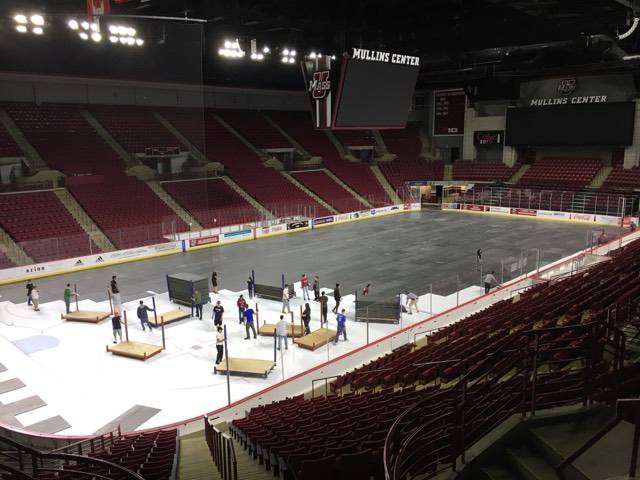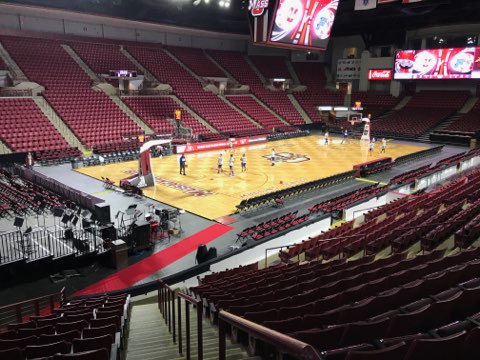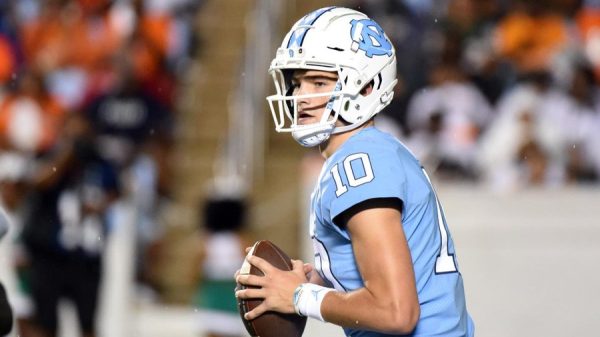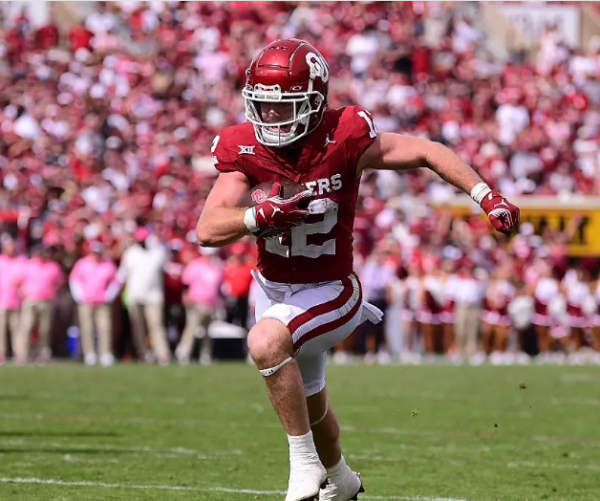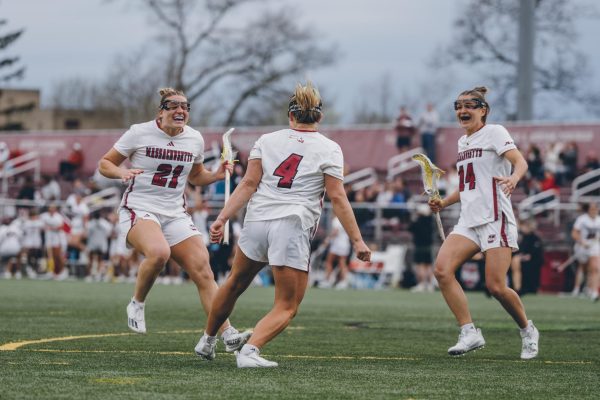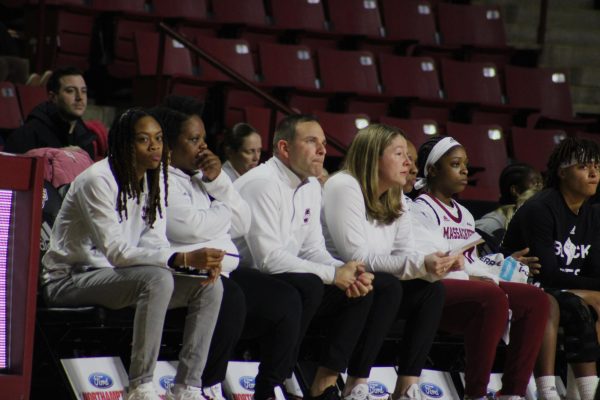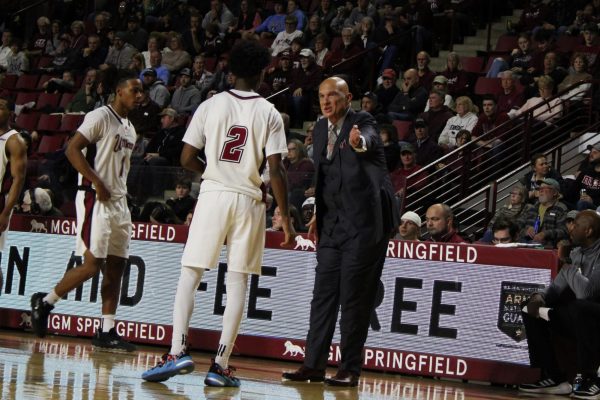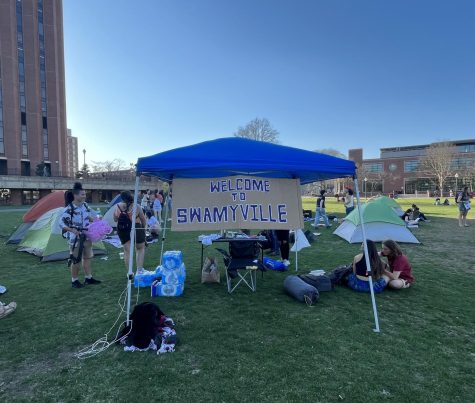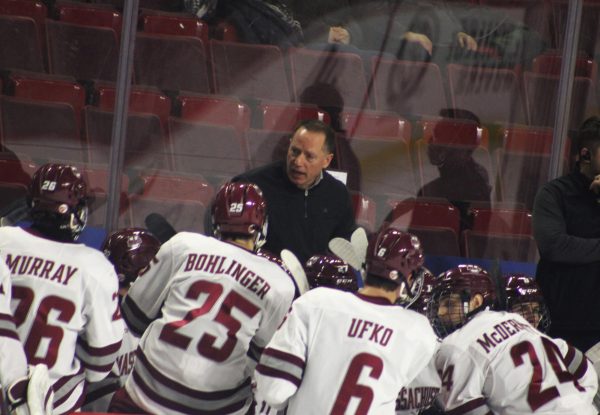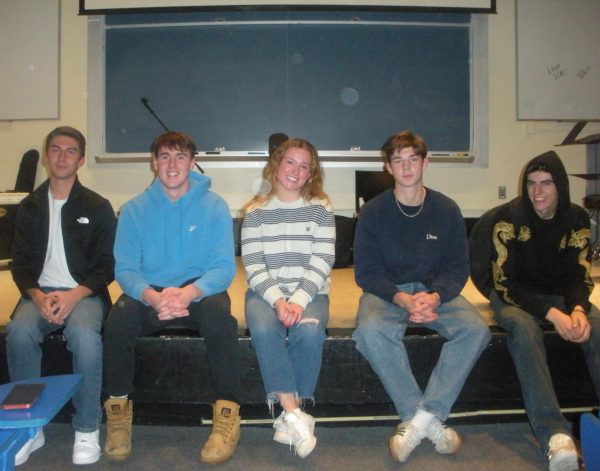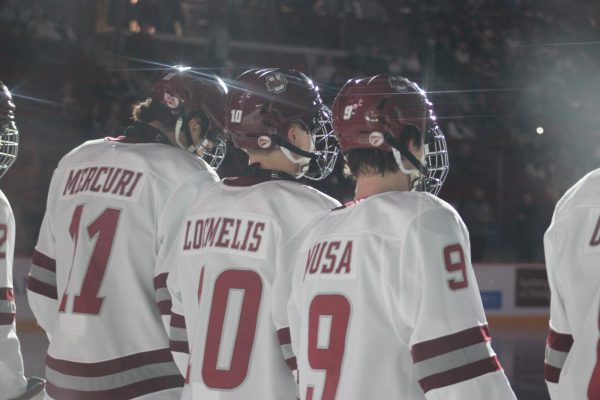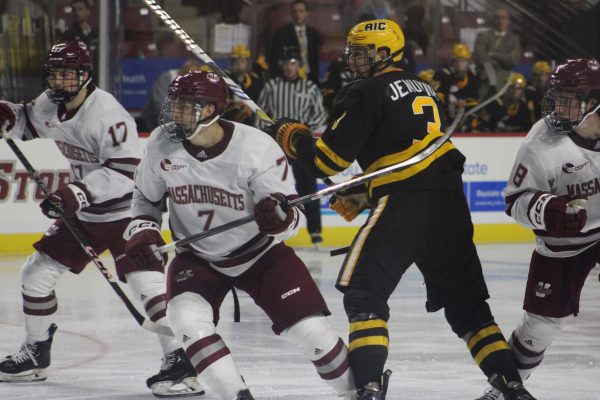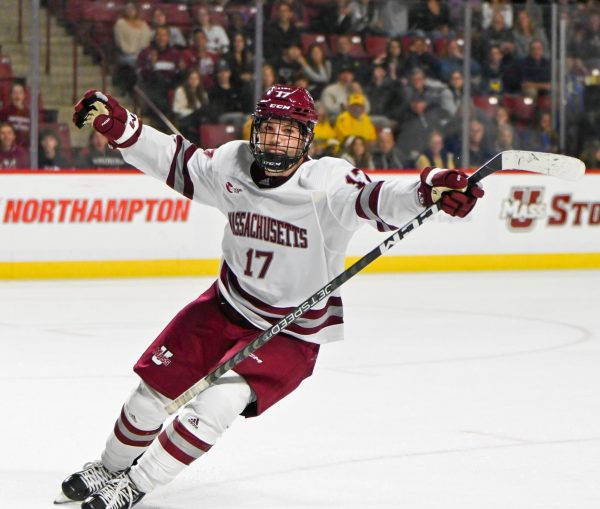The art of the changeover
Hockey, basketball, concerts and other events — How does the Mullins Center house it all?
Thanks to the changeover crew, The Mullins Center is able to switch from an ice hockey rink to a full basketball court in a matter of hours (Liam Flaherty/Amherst Wire).
AMHERST — In arenas that are home to multiple sporting events, it is important to look beyond the teams and players for insight into the work that goes on behind the scenes to make those competitive contests possible.
The same way the TD Garden hosts the Bruins and Celtics in their simultaneous home schedules, the William D. Mullins Memorial Center at the University of Massachusetts takes on the difficult task of sharing an arena between its hockey and basketball teams, as well as concerts and other gatherings.
Shortly after the final buzzer sounds, the fans have gone home and the teams have completed their post-game locker room routines, the hallways of the Mullins Center go dark and another team takes the floor.
The changeover crew, known for its ability to quickly alter the layout of the floor between hockey, basketball and other events interchangeably, is an integral part to the university’s athletic program and ensures that its athletes are focused solely on the game at hand when the time comes to compete.
“By the time we’re done, you can play a full NCAA game on that floor without much else,” Operations Coordinator Michael Ketcham said.
A time-lapse video from the Mullins Center YouTube page quickly demonstrates four separate changes the crew completed over the span of four consecutive days in November.
Ketcham, 27, is a veteran when it comes to the changeover process. He spent six years as a part-timer on the crew and now acts as its primary coordinator.
In his first year on the job, Ketcham is in charge of manning the crew and coordinating its functions. He plans when the changes will take place, schedules how they will get done and organizes the staff of 25-30 employees that are needed to complete the job.
Ketcham is well aware of the pressure that comes with managing the changeovers, but fully embraces the responsibility that lies on the shoulders of himself and his crew to make each one go according to plan.
“The biggest thing with this job is since very often the events are the next day, regardless of staffing or any issues that arise during the night, we have to finish,” he said. “There is no second crew that comes in behind us.”
The overall staff, which consists of roughly 100 part-time employees, does nearly all the manual labor that makes a changeover possible, which can take much more time and effort than a typical fan might imagine from the stands watching their favorite UMass team on game day.
“I have to have this absurdly large staff to get all the shifts that come up during the year properly staffed,” Ketcham said. Because most of his employees have pre-existing commitments to school and other activities, consistency is a challenge. “I never have the same staff night to night,” he said.
In addition, with so much turnover from semester to semester, Ketcham is constantly looking to fill open positions and implement new hires into the schedule immediately so they can start to learn at least some of the knowledge that one needs to be a contributor on the crew.
“We’ve been lucky that there’s always one person that carries knowledge from season to season,” he said. “But you could write out all the details for what we do and still wouldn’t do it right because there’s so much minutia and little things that you can’t explain about the equipment you’re using, the building you’re in and the things that you have to look out for.”
“It’s got to be perfect and it’s not hard to do if you know what you’re looking for, but if you don’t know, that’s the thing,” Ketcham added. “Having people here that know that and understand that really makes the difference.
Because UMass hockey games are typically played Friday nights with basketball taking place on Saturdays, the most difficult changeover for the crew to facilitate comes when setting up the hoop floor in place of the ice rink.
With a changeover like that, the crew is typically at the arena for six hours, from 9:30 p.m. to 2:30 a.m. “But early in the season we have so much new staff to be trained that it can take much longer,” Ketcham said.
Although the work is laborious and can often spill into the early hours of the morning, seeing the finished product grants feelings of gratification, freshman crew-member Nick Canning said.
“When you’re finishing putting the arena together and sitting there at 3 a.m. it’s pretty cool,” he said.
As the changeover begins following the conclusion of a hockey game, a playlist with music from all sorts of backgrounds rings through the empty arena as the crew gets started on a long night of work.
The first order of business to address comes as the most difficult, Ketcham said, when the crew must cover the ice surface by setting the subfloor.
With 10 carts, each consisting of 100, 4 by 8-foot pieces of black fiberglass material, the subfloor covers the entirety of the ice and provides a foundation for the hoop floor to be laid.
“That stuff can be a real pain to use because it expands and contracts with temperature like anything does,” Ketcham said. “When you put it down it will be really tight and almost seem like it won’t fit.”
When the subfloor is complete, the crew deconstructs the plexiglass that circles the ice. Simultaneously, the hoop floor is meticulously measured and laid out piece by piece, typically taking up to an hour and a half.
“From there we basically set all the chairs for things like [the student section], press row, scorers row, bench chairs and all the little stuff that has to go in,” Ketcham said. The crew is also responsible for the hoops and scoring equipment that see action in games.
“It is definitely a rewarding job,” Ketcham said while leaning back in his Mullins Center office. “It can be stressful but I think that comes with any job that’s rewarding.”
“I have UMass games on my shoulders and if I don’t do my job, a major college does not play its very important college game. It’s a lot to have on you but at the end of the day we’ve always gotten the job done and we always will.”
Email Liam Flaherty at [email protected] or follow him on Twitter @_LiamFlaherty.

